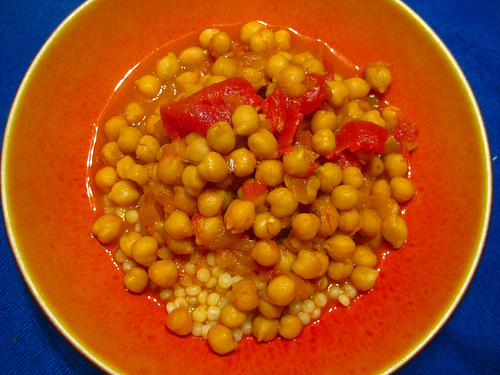“Le thé, ici, on sait toujours quand il commence, jamais quand il se termine.”
The image that many people have of France from the outside — and, for that matter, from the inside — is much more limited than the France that I have gotten to know over the course of my time here. I’ve been lucky, thanks to the classes I’ve been able to take and the books I’ve had the privilege to read, to get to know a France that’s much less French than many Frenchmen would like to admit.
I’m digging at a wound right here, which is not my intention. I don’t wish to judge what other people believe or how other people feel about the country that I have adopted. But the fact remains that I have adopted a country that has not adopted me… and I am not alone in this. France is a country rich in history and rich in culture, a country not defined — as America is — by its diverse population of immigrant cultures. Whereas we are wont to define ourselves by where our ancestors come from, it is assumed, when one is French, that they are as French as the Country Boy, who claims to be French depuis Charlemagne — since Charlemagne.
This is the France of history books and films and novels. The France of Impressionist art and sidewalk cafés and Gothic cathedrals. But there is another France, the France that is home to influences from North and West Africa, from the Caribbean, even from my home, especially now. We hear about Notre Dame in guidebooks; it’s rare to hear about Paris’ mosque which, as you can see from these pictures, is a shame.
The quote that introduced this blog post comes from Le Ventre de l’Atlantique, a book by Fatou Diome, who is a Franco-Sénégalese writer. She has mentioned the very interesting distinction that is French vs. Francophone writers, a distinction that you’ll find in every bookstore in Paris. She says that she knew that she had made it when her novels were moved from Francophone to French, when the French were willing to claim her as their own as opposed to relegating her to a category of writers who, though they wrote in the same language, could not be accepted into the fold of that which is French.
As for the quote itself, it can be translated as follows: “When it comes to tea here, one always knows when it begins but never when it ends.” It may be a Senegalese tradition, one that is foreign in France, but I can’t help but draw a parallel between it and the ever-so-French tradition of apéro. A lengthy time of talking and catching up, of sitting around a drink — alcoholic or not — and being with friends.
As little as some French people may want to believe it, France is a composite culture too, growing more so every day. It may not be as much of a melting pot as the States are, but there are definitely other elements, other cultures to explore. Paris isn’t all baguettes and berets anymore and hasn’t been for quite some time. It’s not a qualitative statement, just an observation from just another outsider, looking upon France from within.
Moroccan Spiced Chickpeas
2 Tbsp. butter
1 Tbsp. honey
1 onion, thinly sliced
2 tsp. chili powder
1/2 tsp. ground ginger
1/2 tsp. ground nutmeg
1/2 tsp. ground cloves
1/2 tsp. ground cinnamon
1 16-ounce can whole peeled tomatoes
2 cups canned chickpeas
1 cup uncooked Israeli couscous
Heat the butter over low heat. Add the honey, the onion and a hefty pinch of salt. Cook, stirring occasionally, until the onions begin to brown and caramelize, about 25 minutes.
Add the spices and cook one minute. Add the tomatoes and chickpeas. Bring to a simmer and cook 20 minutes.
Cook the Israeli couscous according to package instructions. Serve the stewed chickpeas over the couscous.









write more, write faster. your posts make my day, mademoiselle.
ps: do more veg posts!
xo kerry flynn (friend of yer Ma’s)…